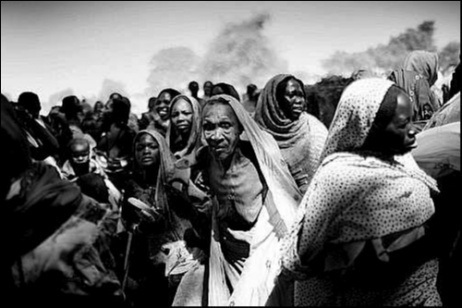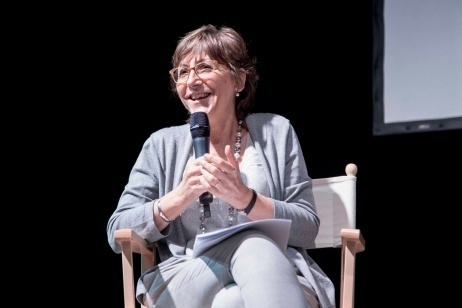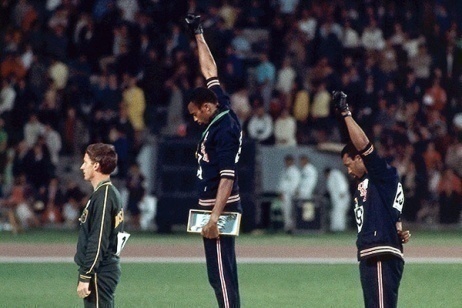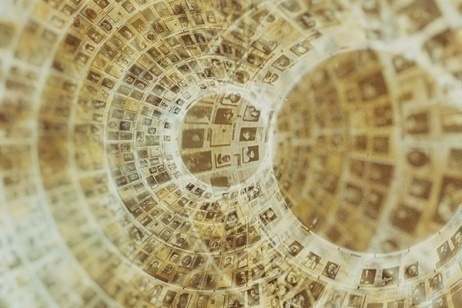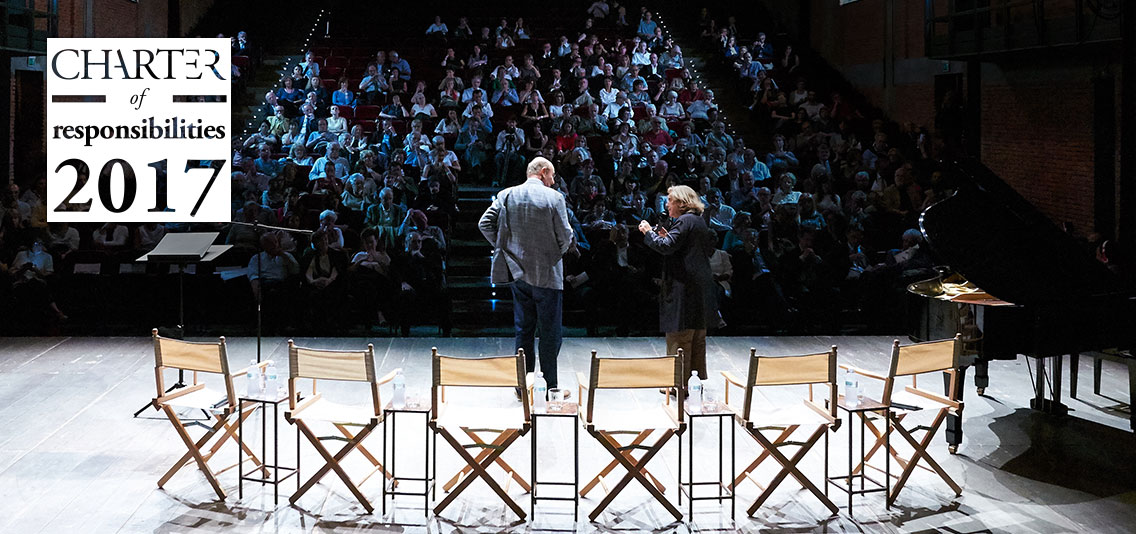
Charter of responsibilities 2017
Our ethical commitment to the memory of the Good and the education to responsibility
In the direst straights of human history, people have often wondered what it means to be responsible in one’s own time.
Some people, very often in solitude, have taken upon themselves the duty of caring about those who were outcast and persecuted because of unjust laws, and have shouldered the burden to defend human dignity, as it was trampled on.
The protagonists of such deeds have not only tried to stem the disasters of bad politics, but have also left traces that have then been useful to rebuild a torn world. Without the initiative of the Righteous women and men, there would not have been any defeat of Nazism and Soviet totalitarianism, nor the birth of the European community.
Such individuals have taught us that moral action, even though it often seems to yield meagre results, over time can cause a chain effect and an emulation movement. What seemed impossible and only the work of people considered by the majority of fellow human beings as visionaries, naïf and lonely, succeeds in influencing the behaviour of the other people and even to change the policies of States and governments.
Still nowadays, those who act responsibly and listen to the voice of their own heart, reason and conscience, can create unhoped-for effects in a complicated world that seems to go a wrong direction.
Suddenly, we realized that economic progress cannot at all be taken for granted and the period of peace and democratic achievements might stop in Europe, as well. We could find ourselves overnight compelled to face new wars, unless we stem the resurfacing of nationalism and the culture of hate.
As Shakespeare sensed in Hamlet, virtuous men are called to readdress the course of that “time unhinged”, in which they happen to live.
Everybody can make the difference in the face of many degenerative phenomena that, as it happened in the past, gather a lot of consent, and which many people get used to with a feeling of powerlessness and resignation.
Every human being can set on a new beginning, like the grocer from Prague who decided to remove from his shop the plasterboard of conformity; his deed was then the first step to push history toward a new direction, and his example rallied many other people.
Writer and dissident (and future President of Czechoslovakia) Vaclav Havel called this regenerative opportunity as the power of the powerless, that is fulfilled when people of different walks of life gather to face the challenges of the time, acknowledging that it is simply impossible to do without the others, because every human being is the bringer of a fragility, a fallibility, a partial truth, or a difference, which though can, from time to time, be straightened out through dialogue and shared experience.
It is this extraordinary process of self-education that makes people understand how true power does not arise from the individual, but rather from the endeavor of building together, overcoming the belief that a new society should be created around the idea of the enemy.
Maybe, never so much as in our time, people, States, supranational organizations, unless they want to fall into the abyss, must cooperate to face the huge challenges that concern the very survival of our planet: poverty, climate change, migrations and the hotbeds of war.
The culture of closure, separation, up to the resurfacing of conflict and hate against the other, relies on the illusion of the self-sufficiency of the individual, as well as of one’s own nation face the world, and as a matter of facts it makes us all much weaker and enemies to each other.
The recognition of one's own fragility is the key element of solidarity and shared humanity, up to the most difficult experience in human relations: the one of forgiveness.
Whoever recognizes the fragility of human beings may be the person, who is the most able to open up to the others. He or she does not care only about not harming the other people and distancing him or herself from what the dysfunctional features of society, but acts to meet the others' needs and taking up a responsibility:
they meet violence with non-violence; they counter xenophobia with hospitality;
they reply to hatred and contempt by offering their friendship;
to those who want walls or fences, they respond by building bridges.
He or she has in facts understood that to defeat evil, it is necessary to anticipate Good.
This way, as it happened to many Righteous over history, who filled a void and built small islands of humanity, the person who is responsible within his or her span of control offers his or her contribution to readdress the world. Their example can become catchy and ignite a spark among the people.
Through an act of goodness, they call everybody to act together in the name of our common humanity.
A new start begins by challenging indifference.
Unfortunately, we have gotten used to the idea that, in the face of genocide and mass atrocities, we cannot be anything else than bystanders. Philosopher Theodor W. Adorno bitterly noted that no one lost their appetite while watching the dreadful bombings in Vietnam on TV, at supper time. Nonetheless there were many people, all over the world, who took to the streets to demonstrate, persuaded that it would be possible to stop that war. Today, the destruction of Syria and the crimes against the humanity perpetrated by ISIS suggest that we are still far from an international policy of genocide prevention. But this is not ineluctable. Every person can become a protagonist not only at denouncing mass atrocities over the social networks and in public life, but also at reminding the political world that the commandment “thou shall not kill” should be the first ethical imperative in international relations.
Everyone of us must call Europe to play an active role in stopping genocide, making international criminal courts effective, reporting any kind of genocide denial and putting into effect practices of conciliation and pacification in the face of wars and conflicts.
Unless this void is filled, Holocaust Remembrance Days run the risk of becoming mere exercises of rhetoric and hypocrisy. Responsibility toward the victims of the past proves inadequate when we fall short of care and mercy toward those who are being humiliated in the present time. This is why it is a moral scandal that the emergency of migrants does not find any common response from Europe to grant an economically viable future to the countries, in which human beings endure unacceptable life standards, and that many people consider hospitality as the end of Western civilization, seeing in migrants the enemies of our wellbeing and future. It is unacceptable that the burden of such responsibility is placed on the will of each single country, while the majority remains indifferent or shuts the borders.
Then, in the face of terror violence and religious obscurantism there are no easy way outs. The fear of a phenomenon that hits people randomly and aims at creating divisions and clashes between people of different faiths and cultures can be overcome only if we create a credible pathway leading to its end.
Every individual should ask him or herself what to do to stop terroristic violence. When we clearly know which pathway we shall follow, we are no more conditioned by the blackmail of murderous fanaticism.
The first step is the understanding of the ideology that drives terrorists, because without a cultural battle on values it is impossible to take young people away from the enticement of fundamentalist fanaticism. There is no totalitarian ideology that was not first of all defeated on the field of ideas. The second step, which is absolutely indispensable, is the involvement of Muslim communities in a plural movement of moral resistance that sees together laymen and believers of all faiths.
From those who believe in Islam and any religion, a strong and clear message should emerge. When people kill in the name of God and finds a justification to carry outsavage deeds, as Etty Hillesum wrote some time before dying in Auschwitz, in facts they kill God Himself. This is why people, under the worst circumstances, are called to defend God from those who would like to turn him into a savage criminal.
A new beginning is possible when we find again the pride of being European citizens without falling into the illusion that the return to small fatherlands, local sovereignties, and protectionism, can help us face the contradictions of globalization and the limits of European construction.
It does not suffice any longer to complain about Europe's failures to do something for us, with the quarrelsome attitude of those who only list their own claims. On the contrary, everyone should start ask themselves what they can do to strengthen the European community.
Europe, with all its faults, has given us the opportunity to experience an extraordinary period of peace after the collective suicide of two world wars. The European dream of great writers such as Milan Kundera and Czesław Miłosz has been the propelling idea that made it possible to accomplish a miracle that no one could have ever imagined in the Eastern European countries before 1989: the peaceful end of the Soviet totalitarian rule and the re-composition of a torn identity. Europe enabled us to strengthen a democratic system, which extended freedom and citizens', women's and minority rights: it has been for years the engine of economic growth, creating a widespread wellbeing.
Getting back would not only mean repressing historical memory, but also reopening a time of clashes and rivalries, which would get us to fall again into the worst abysses of the past and would lead our continent to become irrelevant in the international context.
It is time to set into motion our best energies to accomplish a federal project that shall create democratic and sovereign institutions, in which European citizens can recognize their own belonging and work for an European community that may help the development of the weaker countries.
Today's world, which is torn, wild and violent, without any reference point, but with many powers that aim at a dangerous hegemony, needs the role of Europe. We Europeans may be able to offer a culture, which may lead to the peaceful resolution of conflicts. Because, on the one hand, we are able to think of the world with a universal and cosmopolitan outlook, but on the other hand, with our history we have laboriously created institutions, which are able to cope with plurality and diversity, social conflicts, and the relations between State and religion. From experiences that tore us apart, like the different forms of totalitarianism, we have been able to develop the antidotes to avoid the reductio ad unum of human society. Europe should let its voice be heard in more influential a way to denounce anti-Semitism, homophobia and every other kind of discrimination, and promoting women's emancipation and the respect of human rights. It can do so by the example set by its institutions, but also by the means of a brave foreign policy.
This was underlined by philosopher Jan Patocka in Prague in 1977 (little before dying following a harsh questioning of the political police), when he called the European countries to a moral responsibility: “The concept of human rights does not consist in anything else than the conviction that also States and society shall abide, as a whole, by the supremacy of moral feeling”.
A new start is possible if we all are the protagonists of a revolution in our mindset that shall strongly re-propose, in the public debate and the daily human relations, the taste of seeking the truth, dialogue, listing, empathy and active mercy.
Many people believe that, in the face of the disarray in the face of an uncertain future, closure in the unsurpassable walls of one's own nation, faith, and identity is the main road to overcome anxiety and fear.
This kind of self-defence of our ego in the fact of the others is a fertile ground, on which hatred and violent clash resurface. It is through these mechanisms that the culture of the enmity and division between us and them, that pollutes democratic life and feeds nationalism and populism, rears its ugly head again.
We notice this in the widespread habituation to a miserable political debate where all too often the logic of anathema and contempt prevails and people have lost the taste for competence, the quest for truth and a shared assumption of responsibility. We notice this in the social networks, which often are the intimate reflection of our behaviors, as noted by Zygmunt Bauman; here the people, seeking ways to assert themselves, prove to be impervious to the others’ ideas and search from time to time for an enemy to demonize to assert the absolute sovereignty of their own ego. We observe it in the logic of the fences erected at the borders to defend oneself from migrants, and that are built again every time subjects of different cultures and faiths consider cultural contamination as a danger for their identity.
We must work to rebuild in the Polis a democracy of friends who discuss politely and debate ideas the same way, putting an end to the logic of insult and personal curse, with the awareness that no one is ever the bringer of an absolute truth. Sharing one’s views with the others sincerely and with intellectual honesty can make it possible for democracy to creatively work.
A different set of good manners for Politics can arise only from the responsibility of the media and the individuals. Too few people have the courage to denounce the violent and quarrelsome language, to show their own disapproval when a politician expresses his views with contempt, dehumanizes people and presents his or her foes as enemies to be demolished. Those who use insult in political communication do not only pollute our society, but also generate a confrontational climate that inhibits bonds and solidarity among the people.
The force of democracy, on the contrary, consists above all in being able to choose and then building together through the sharing of responsibility.
A major contribution to this ripening can be given by a new way of dialoguing in the social networks, recognizing without any self-referential pride the others’ reasons and predisposing oneself to change one’s mind if needed. It is important to watch over the truthfulness of facts and not to allow lies to prevail. Renunciation to thought and reason make it possible to fake statements to spread over the internet clashing with earnest journalistic work and historical and scientific research, and provide the basis for pseudo-narratives of demagogues and populists, creating a dangerous virus for democracy. Social networks can provide a great opportunity to open up to the world, or become a way out, where small sects are built, each against the others.
Those who write tweets or messages from Facebook must be aware that a sick word, or a baseless accusation, can unleash hatred in a chain reaction able to destroy people. On the Web, words become immediately public, and every one of us becomes an opinion or editor of him or herself, running the risk of quickly amplifying summary judgements, simplifications and falsifications of the truth. As Kant said, we should refrain from publicly expressing the first thing that crosses our minds, because sometimes our feelings could not be completely “innocent”. This is why everyone of us has a personal responsibility over the Net and before expressing an opinion or letting an unverified information circulate, they should reflect on the consequences of their own assertions.
The most difficult challenge is the acceptance of the other in our society.
The arrival of millions immigrants all over Europe, with religions and cultures different from outs, has created a climate of uncertainty and often our first concern is to create fences to impose our points of view.
There is only a way to win over the fear that generates monsters and causes a climate of suspicion and insecurity, where everybody become enemies: the perseverance at searching together for our common humanity and our capability to think and judge, always putting ourselves in the others’ shoes.
As it always happened over history, a pathways of symbiosis and mimesis among different civilizations occurs, albeit not linearly, within a common experience wherepeople discover with curiosity the possible similarities between the cultures and the same responsibilities before the world.
Of course, integration cannot leave out of consideration the sharing of fundamental rights, nor can be realized through abstract formal agreements.
Accepting does not mean to making a step back as far as our values are concerned.
The themes of tolerance, dialogue between cultures, and diversity are to be put in relation to our identity and our achievements.
Modernity meant as the rights acquired by the weaker in an open society; the universal value of democracy as opportunity for everybody and freedom of thought; the separation of powers, accompanied by checks and balances provided by given social structures; the ability of providing mediation and problem-solving at the highest level between clashing interests; these factors altogether are the substance of a historical experience, which new Europe shall take charge of, unless it wants to die crushed by the burden of its own non-fulfillments, both in the political and in the social realm.
This new beginning is no impossible endeavor, because there are many people who have raised their head again to respond to indifference, not to let themselves be involved in the culture of hate, to resist terrorism, reassess the value of plurality and hospitality, peace and non-violence.
We can call them as the Righteous of our time.
It is up to us to get people to learn about them and follow their footprints, as it happened many times over history.
Signatories
Giuseppe Sala, mayor of Milan
Gabriele Nissim, president of Gariwo
Andrée Ruth Shammah, director of Teatro Franco Parenti of Milano
Piergaetano Marchetti, president Corriere della Sera Foundation
First signatories
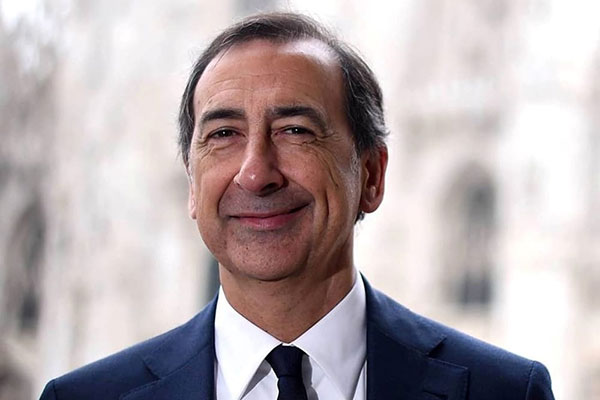
Giuseppe Sala
mayor of Milan
It is a great honor for me being the first signatory of the Charter of Responsibilities 2017. I am proud of it as a citizen and as the Mayor of Milan. Because Milan is a city that takes its responsibilities and does not give in to indifference. On the contrary, it wants to act as a bearer of universal values of justice, peace, respect, solidarity, fairness and equality of rights. For this reason, I have adhered with conviction to the Charter, since it appeals to the personal responsibility of each one of us, it is an appeal to do well and to do good everyday.
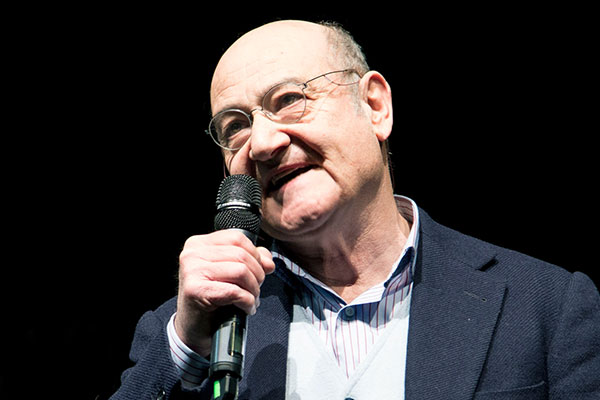
Gabriele Nissim
president of Gariwo
This Charter, inspired by the experience of Charter ’77, represents our ethic commitment for the memory of Good and the education to responsibility. I am very glad to present it in the Franco Parenti Theatre with Andrée Ruth Shammah and in agreement with the Mayor Sala, as a moral proposal of our city. The message is to reaffirm the value of plurality, of peace and non violence, as opposed to the culture of hatred and enemy.

Andrée Ruth Shammah
director of Teatro Franco Parenti of Milano
In this moment the world believes that everything goes wrong but that it does not depend on us as individuals. Instead, each one of us must do his own part. We must know to have a role and we must acknowledge it. We cannot be silent and the duty of the society is fundamental. Franco Parenti Theatre itself took upon the responsibility to share the themes of Gariwo, by becoming its ambassador.

Piergaetano Marchetti
president Corriere della Sera Foundation
As Foundation Corriere della Sera, we made a commitment coherent to our motto: the freedom of ideas, the courage to confront ourselves, to be ourselves even if assailed by conformisms. I truly appreciate the appeal to be curious about the different one and the passionate push to abandon the fences.
They joined the Charter of responsibilities 2017
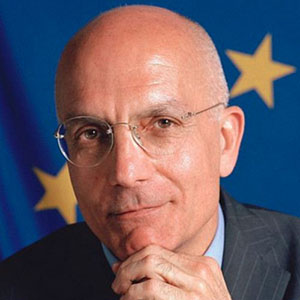
Gabriele Albertini
AP senator
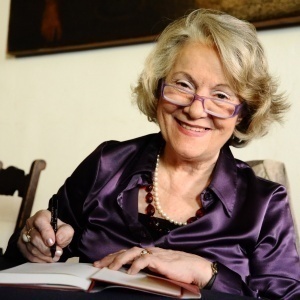
Antonia Arslan
writer

Luca Barbareschi
president of Eliseo srl, Teatro Nazionale since 1918

Brando Benifei
Member of the European Parliament
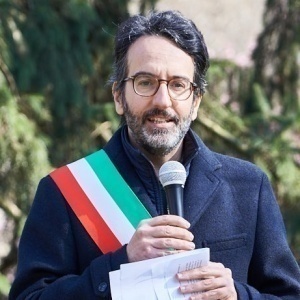
Lamberto Bertolé
president of Milan’s City Council
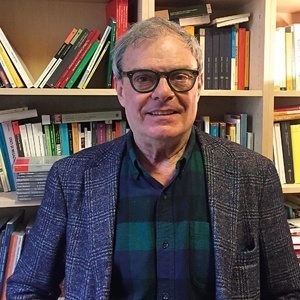
Giancarlo Bosetti
director of Reset Dialogues and Civilization
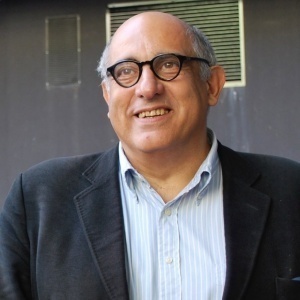
Francesco Cataluccio
essayist and writer
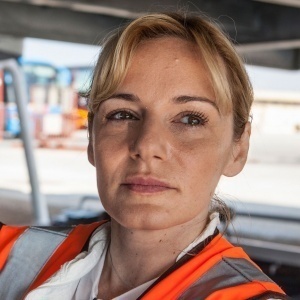
Regina Egle Liotta Catrambone
founder of MOAS (Migrant Offshore Aid Station)
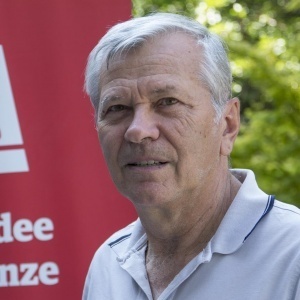
Claudio Ceravolo
president of Coopi
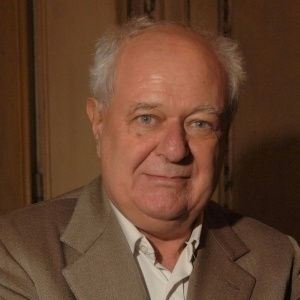
Janiki Cingoli
president of CIPMO
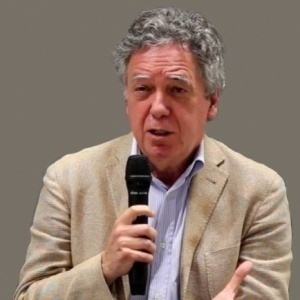
Nando dalla Chiesa
writer, politician and professor at University of Milan
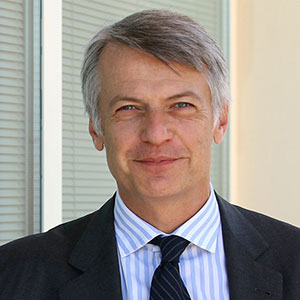
Ferruccio de Bortoli
editorialist of Corriere della Sera
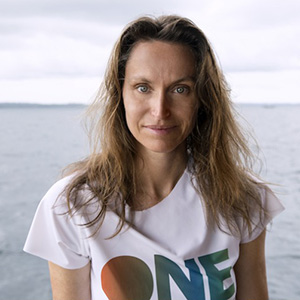
Anne de Carbuccia
environmental artist

Noemi Di Segni
president of UCEI
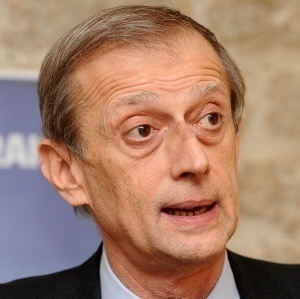
Piero Fassino
president of Foreign Affairs Commission of the Italian Chamber and president of Cespi
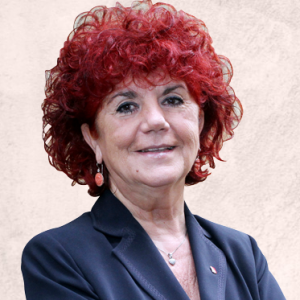
Valeria Fedeli
Minister of Education, University and Research
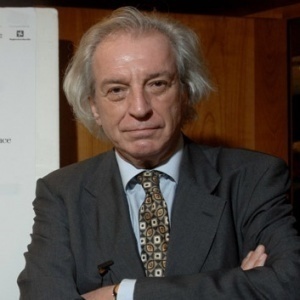
Antonio Ferrari
editorialist of Corriere della Sera
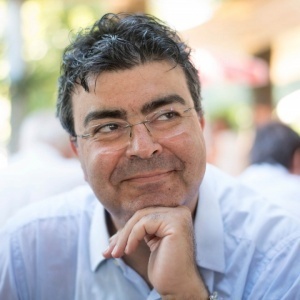
Emanuele Fiano
PD deputy
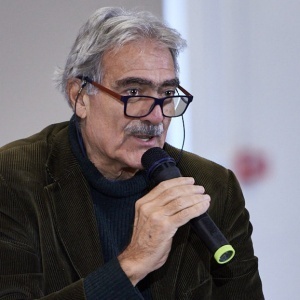
Marcello Flores
historian

Anna Foa
historian and professor at Sapienza University of Rome

Dario Franceschini
Minister of Cultural Heritage and Tourism
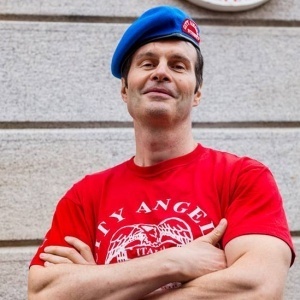
Mario Furlan
founder of City Angels
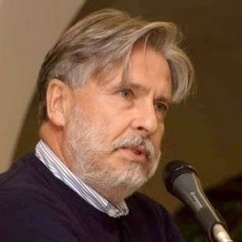
Stefano Jesurum
journalist and writer

Francoise Kankindi
president of Bene Rwanda
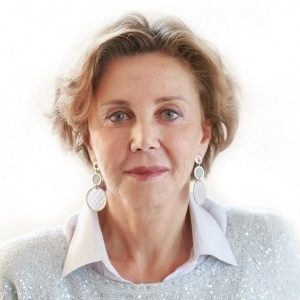
Viviana Kasam
founder of BrainCircle Italia

Gaetano Liguori
pianist
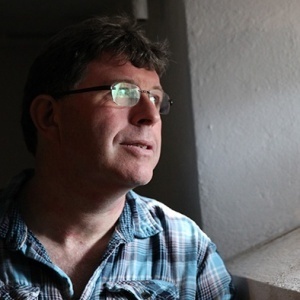
Antony Lishak
writer and director of Learning from the Righteous
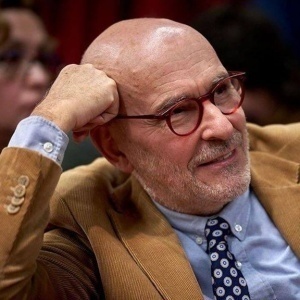
Alessandro Litta Modignani
journalist

Bruno Marasà
former European Parliament official

Alberto Martinelli
president of AEM Foundation-A2A Group
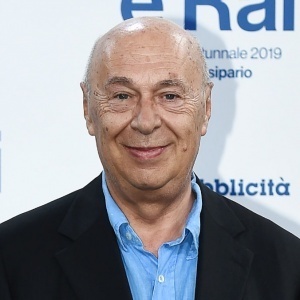
Paolo Mieli
editorialist of Corriere della Sera
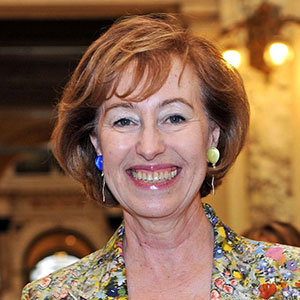
Letizia Moratti
former Mayor of Milan
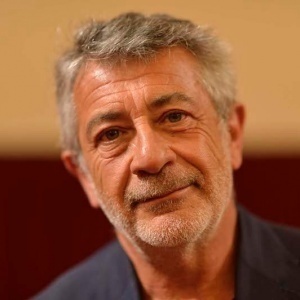
Alberto Negri
war reporter of Il Sole 24Ore
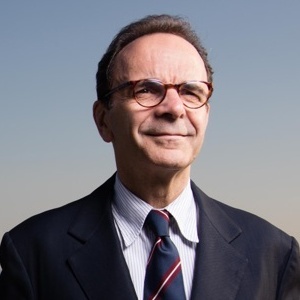
Stefano Parisi
Energie PER L'Italia
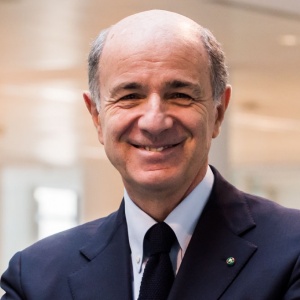
Corrado Passera
politician

Giuliano Pisapia
lawyer, former Mayor of Milan
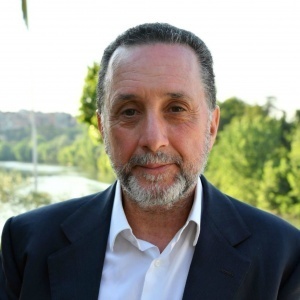
Antonio Polito
editorialist of Corriere della Sera
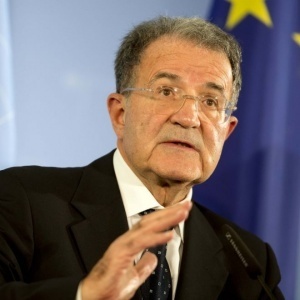
Romano Prodi
president of Popoli Foundation

Massimo Recalcati
psychoanalist
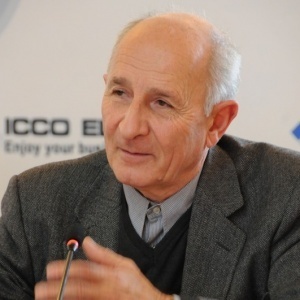
Don Gino Rigoldi
founder of Comunità Nuova
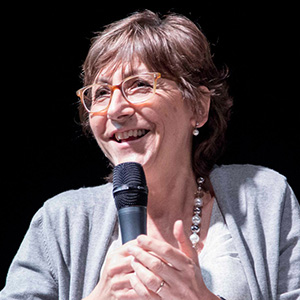
Milena Santerini
national Coordinator for the fight against anti-Semitism
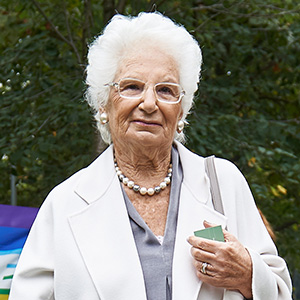
Liliana Segre
Holocaust survivor and Life Senator
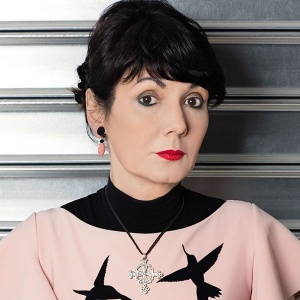
Elisabetta Sgarbi
publisher
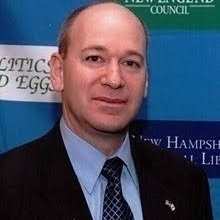
Nadav Tamir
former Israeli diplomat and board member of Mitvim
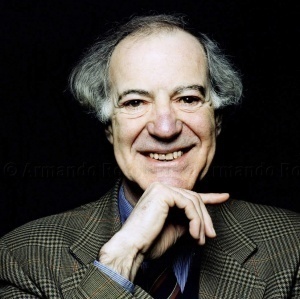
Salvatore Veca
philosopher
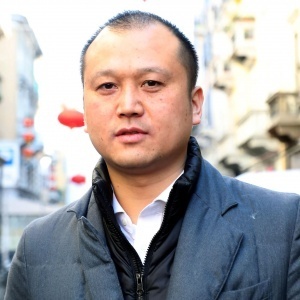
Francesco Wu
president of Union of Italy-China Enterpreneurs
They also joined...
- Giovanna Abbiati Fogliati, Maruzza Foundation
- Sumaya Abdel Qader, City Councillor of Milan
- Mario Andreose, journalist, interpreter and publisher
- Alessandro Artom, lawyer
- Alice Artom, lawyer
- Piero Artom, designer
- Sandra Artom, journalist
- Yair Auron, historian and professor at the Open University of Israel
- Salvatore Badalamenti, in charge of EAs and director Uo Medicine, Nephrology and Dialysis
- Victoria Bagdassarian, Ambassador of Armenia to Italy
- Emilio Barbarani, former Ambassador in Santiago of Chile
- Pietro Barbetta, director of the Centro Milanese di Terapia della Famiglia
- Paul R. Bartrop, historian, director of Center for Judaic, Holocaust, and Genocide Studies
- Luciano Belli Paci, law firm Belli Paci
- Hamadi ben Abdesslem, guide of the Bardo Museum Tunis
- Cobi Benatoff, former President of European Jewish Congress
- Moreno Bernasconi, president of Federica Spitzer Foundation
- Padre Giuseppe Bettoni, president of Arché Foundation
- Daniele Biella, journalist
- Paola Bocci, president of Cultural Committee of Milan’s City Hall
- Laura Boella, professor at University of Milan
- Barbara Bonura, journalist
- Gabriella Brusa Zappellini, archaeologist
- Ugo Caffaz, uanthropologist and policy consultant of the Memory of Region of Tuscany
- Dario Calimani, professor at Ca’ Foscari University, Venice
- Pietro Calissano, president of European Brain Research Institute
- Bona Cambiaghi, former professor at Catholic University of the Sacred Heart of Milan
- Antonella Camerana, president of Missione Sogni Onlus
- Gabriella Caramore, writer
- Dario Carella, journalist of RAI
- Maurizio Carrara, president of UniCredit Foundation and ASP Pio Albergo Trivulzio Martinitt e Stelline
- Stefano Cattaneo, general director of Pio Blind Institution Foundation
- Marco Cavallarin, Sciesopoli Ebraica (1945-1948)
- Giulia Ceccutti, editor
- Francesco Cevasco, editorialist of Corriere della Sera
- Marilena Citelli Francese, president of MusaDoc Association
- Maurizio Cohen, lawyer and professor
- Giancarlo Comi, neurology professor at Vita Salute San Raffaele University, Milan
- Giovanni Cominelli, journalist
- Bruno Contigiani, president Vivere con lentezza
- Silvia Costa, journalist, former MEP
- Diana de Marchi, president of Even opportunities and human rights committee, Milan’s City Hall
- Luca Degani, law firm Degani
- Sabrina Di Carlo, educator
- Martino Diez, scientific director of the Oasis International Foundation
- Manuela Dviri, writer and journalist
- Bruno Ferrari, president of Fondo Scuola Italia
- Daniele Ferrero, Venchi S.p.A.
- Alganesh Fessaha, president of ONG Ghandi
- Pupa Garribba, journalist and essayist
- Konstanty Gebert, journalist and Solidarity member
- Mara Gergolet, journalist of Corriere della Sera
- Marina Gersony, journalist
- Giovanna Grenga, teacher
- Hafez Haidar, Nobel Peace Prize nominee in 2016
- Shady Hamadi, Syrian writer and activist
- Maryan Ismail, Forum of secular Muslims
- Piotr Jakubowski, director of History Meeting House in Warsaw
- Cristina Jucker, journalist, professor at University of Milan
- Elisabetta Kelescian, former Ambassador of Italy in Finland
- Pietro Kuciukian, honorary consul of Armenia to Italy and co-founder of Gariwo
- Fiorella Leone, Casa della Memoria e della Storia (House of Memory and History) of Rome
- Antonella Maccagni, director of Istituto Professionale – Chiara of Casalmaggiore Foundation
- Maria Immacolata Macioti, sociologist at Sapienza University of Rome
- Gerard Malkassian, philosopher
- Agopik Manoukian, honorary president of Unione degli Armeni d'Italia
- Claudio Martelli, politician and journalist
- Maria Grazia Mattei, direct or Meet the Media Guru
- Stefano Mauri, publisher
- Marina Mavian, Casa Armena (Armenian House) of Milan
- Abdoulaye Mbodj, lawyer in Milan, president of "A.A.B.A. Onlus"
- David Meghnagi, psychologist and professor at Roma Tre University
- Giovanna Melandri, president of MAXXI Foundation and president of Human Foundation
- Francesco Micheli, financial expert
- Cristina Miedico, director of the Archaeological Museum of Angera
- Anna Migotto, journalist and writer
- Giangi Milesi, president of Cesvi Foundation
- Stefania Miretti, journalist and writer
- Ziva Grazia Modiano Fisher, association ADEI WIZO
- Noris Morano, communication consultant
- Giorgio Mortara, UCEI vice president
- Raffaele Mozzanica, lawyer
- Daniele Nahum, member of Jewish Community in Milan, former President of UGEI
- Salvatore Natoli, retired professor of theoretical philosophy at the Milano Bicocca University
- Paolo Navarro Dina, journalist
- Nadia Neri, psychologist and analyst
- Radka Neumannovà, Czech Centre
- Marina Nissim, business owner
- Marcelo Pakman, former vicepresident of American Society for Cybernetics and American Family Therapy Academy
- Emma Papini, lawyer
- Stefano Pasta, journalist and researcher at CREMIT
- Stella Pende, journalist
- Andreas Pieralli, Garden of the Righteous of Prague
- Vincenzo Pinto, director of FreeEbrei
- Gianni Pittella, Member of the European Parliament
- Lia Quartapelle, Pd speaker for the Foreign Affair Commission of the Chamber of Deputies
- Ulianova Radice, co-founder and director of Gariwo
- Dario Rivolta, former vicepresident of Foreign Affair Commissions at the Chamber of Deputies
- Elisabetta Rosaspina, special envoy of Corriere della Sera
- Farian Sabahi, uni professor, journalist and writer
- Isabella Salimbeni, geriatrician doctor
- Brunetto Salvarani, president of Italian Association Friends NSWAS
- Giovanna Salza, communication expert
- Anna Maria Samuelli, co-founder of Gariwo
- Luciano Scalettari, journalist
- Ilana Schachter Gattegna, angyologist
- Gadi Schoenheit, assessor for culture of the Milan Jewish Community
- Nino Sergi, honorary president of Intersos
- Rita Sidoli, former professor at Catholic University of the Sacred Heart of Milan
- Paolo Guido Spinelli, former Ambassador
- Nathan Stoltzfus, historian, professor of Holocaust studies at Florida State University
- Patrizia Toia, MEP
- Davide Tuniz, director of Liberazione e Speranza Onlus – Novara
- Marco Ubezio, lawyer
- Marco Vianello Chiodo, former executive director of Unicef
- Sergio Vicario, communication expert
- Amedeo Vigorelli, professor of Moral Philosophy at the University of Milan
- Massimo Vitta Zelman, Skira publishing house
- Giorgio Vittadini, industrial manager
- Mischa Wegner, son to Armin T. Wegner
- Tobia Zevi, adviser of the Italian Minister for Human Rights and International Cooperation
- Simone Zoppellaro, journalist




